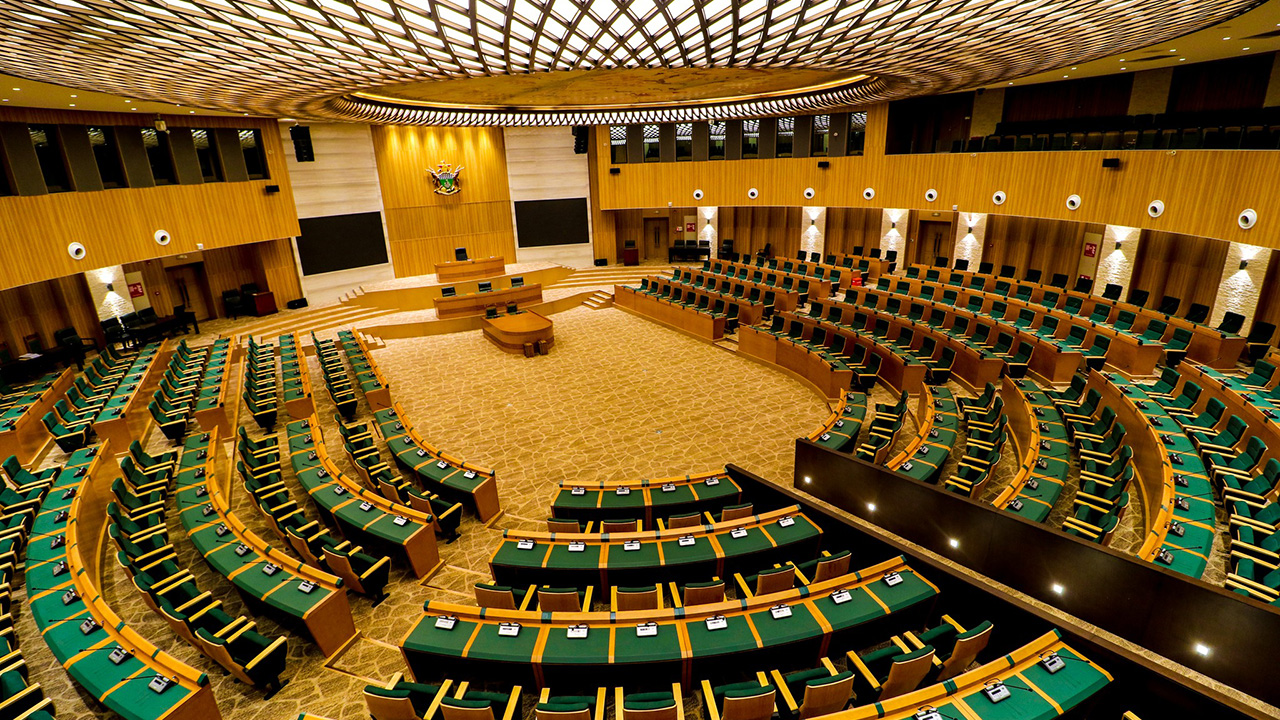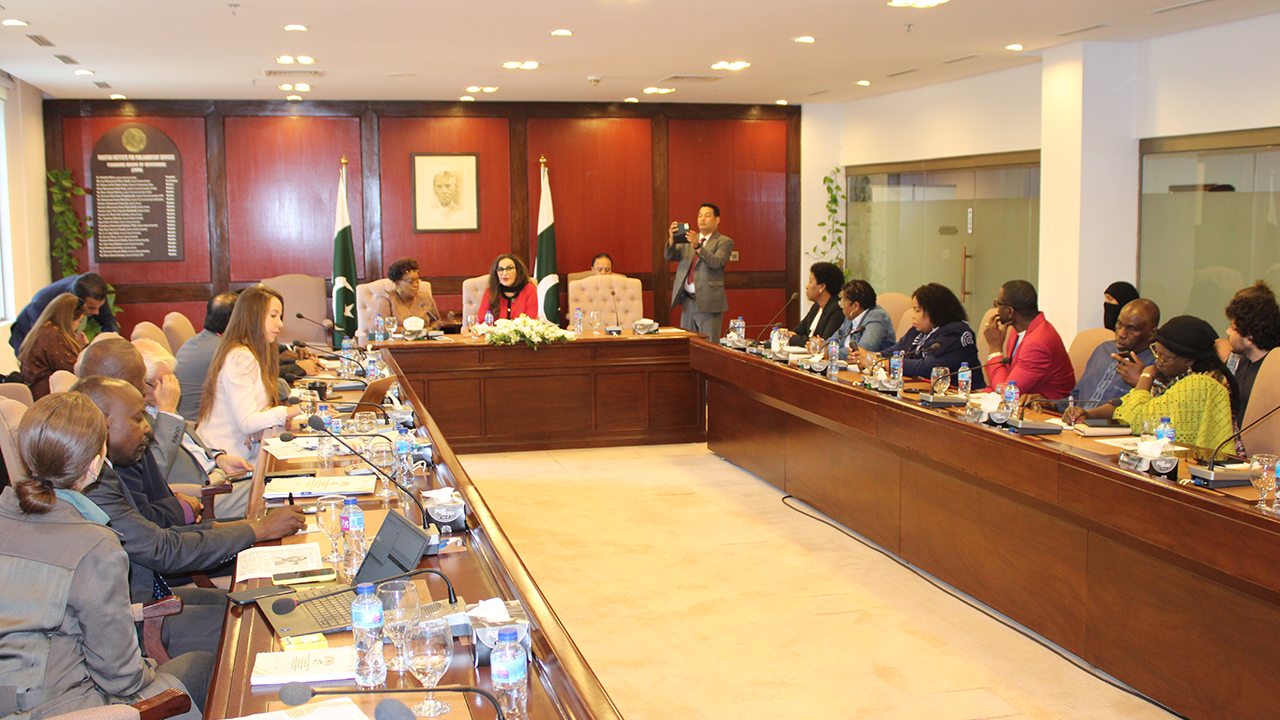
On 3 April 2018, parliamentarians and representatives from civil society met in the Parliament of India, New Delhi, to discuss Addressing Inequalities of the Criminal Justice System and the Death Penalty. This consultation was convened by Parliamentarians for Global Action (PGA) in partnership with the PGA India National Group, with the support from the Australian Department of Foreign Affairs and Trade.
The consultation was hosted by Hon. Tariq Anwar, Member of the Lok Sabha, Member of PGA’s Executive Committee and outgoing Chairperson of PGA’s National Group in India, and Hon. Supriya Sadanand Sule, Member of the Lok Sabha, incoming Chairperson of PGA’s National Group in India.
Participants first discussed the Indian Criminal Justice System, the Death Penalty and Inequalities with welcoming remarks from Hon. Tariq Anwar and the inaugural address from Hon. Professor P.J. Kurien, Deputy Chiarman of the Rajya Sabha. In his address, Hon. Kurien stressed the responsibility that parliamentarians have to protect their citizens from human rights violations and the fact that Rule of Law needs to be equally implemented. The Deputy Chairman affirmed that to ensure real democracy parliament needs to improve the situation for poor people and strive to ensure true economic and social equality. He explained that there is no equality in criminal justice in practice as it is very difficult for a poor person to get justice in the current criminal justice system. He saluted PGA for its actions that contribute to the “betterment of world” and for initiating discussions on this important issue, regarding which he expressed his firm conviction that no one, including the State, is entitled to take any life away, framing the tone of the roundtable in a strong abolitionist perspective. Hon. Kurien underscored that the death penalty is removing the opportunity for the convicted person to repent, confess, remedy and repair for his/her crimes: Hence, the death penalty denies the opportunity to achieve real justice.
The session was chaired by Hon. Sule who gave the floor to Hon. Dr. E. M. Sudarsana Natchiappan, Member of Rajya Sabha, and President of Indian Society of International Law (ISIL). He expressed strong support for improving the criminal justice system and abolishing the death penalty explaining that abolition almost happened in 2013/2014. Hon. Sule then introduced the PGA Delegation including Lord Purvis of Tweed, Member of the UK House of Lords and All Party Parliamentary Group against the Death Penalty Hon. Radheshyam Adhikari, Member of the Rastriya Sabha of Nepal and Hon. Meen Bahadur Bishwakarma, former Minister for Commerce of the Government of Nepal and Member of the Rastriya Sabha.
Lord Purvis of Tweed shared the United Kingdom’s journey to the abolition of the death penalty explaining that it has been found that at least 30 innocent people would have been executed in Britain if the country had not committed to abolition. Lord Purvis further explained that the death penalty does not allow the system to address its own errors and that while MPs go to parliament with clear views that people elect them for, they can change their minds and seek to understand the nuances to issues that may get lost in public rhetoric. He highlighted the fact that in the 1970 UK general election citizens cast their votes based on jobs and education and not a single Member of Parliament who supported abolition lost his or her seat. Sharing his experience as a Member of the House of Lords, he emphasized five things that the upper house not directly elected can do, including:
- Put forth private members bills;
- Facilitate events in parliament’
- Scrutinize, ask questions, build data, fill in gaps working with civil society;
- Build consensus and relationships between groups including civil society;
- Bring together experts and publish report from judges, civil society, etc. and take a longer term view.
During this session, Hon. Bishwakarma, MP (Nepal), expressed his support of the discussions and shared Nepal’s experience on the consultation that abolished the death penalty in 1990 when Nepal’s new constitution guaranteed abolition of the death penalty.
PGA Secretary-General, Dr. David Donat Cattin shared experiences of PGA members committed to abolition other countries, including Trinidad and Tobago and Jordan. He recognised the importance of the Deputy Chairman’s intervention and called for action ahead of the 2019 elections, emphasising how many times the wrong persons have been convicted to the ultimate penalty as a consequence of human errors, which are making a great majority of Judges and justice practitioners opposed to the notion of capital punishment. The Secretary-General also stated that criminal justice sanctions may be imposed by repressive regimes as a result of abuses of power, and deeply regretted that the leading PGA Member from The Maldives, Hon. Ahmed Mahloof, could not be invited to Delhi due its prolonged detention in violation of his fundamental human rights. Dr. Donat Cattin thanked PGA Board Member Hon. Anwar and Deputy Speaker Kurien for having put together this vital debate, stressing that India is the largest democracy of the world under the Rule of Law and that this debate would be a great cause for learning and growing.
Dr. Anup Surendranath, Director of the Centre on the Death Penalty, National Law University Delhi presented on the disproportionate and unfair use and administration of the death penalty in India, explaining the data gathered by the Centre in a pivotal scientific study on the use of the death penalty in India that shows that 61% of inmates in death-rows interviewed were illiterate or did not complete school and that 80% were tortured into confession. Additionally, 75% of prisoners convicted to the death penalty were identified as very poor and over 60% did not have access legal aid lawyers.
Honourable Majeed Memon, Member of the Radja Sahba and Advocate before the Indian Supreme Court, backed up the data presented by Dr. Surendranath with stories from his experience as an attorney representing the accused in the criminal justice system and those potentially facing the death penalty. He opposed the death penalty because when mistakes are made and negligence occurs this sentence is irreversible. “If there is one case of an innocent being executed, we cannot excuse ourselves and our system needs to blamed,” he said. Hon. Memon further explained that the Supreme Court has justified death penalty if it falls under “rarest of rare case”, which he characterized as a vague concept that may not effectively reduce the use of the death penalty. In order for someone to be sentenced to death, the sentence needs to be confirmed by two judges of the High Court. He explained that some High Court judges do not take each case seriously and neglect to run through the evidence from beginning to end. Judges are also swayed by the manner the crime has been committed or by the effect on society which are not strictly legal considerations, explained the MP. Hon. Memom has said many times, “show me one example of one case where a rich man has been hanged.” He explained he has never heard of such a case whereas poor people, who cannot afford justice, are primarily those subjected to the harshest penalties. Hon. Memon believes that there is an obligation for the system to provide speedy and inexpensive justice. He explained that legal aid is supposed to be provided to every arrested person within 24 hours, but that this has not been the case which is a failure of justice. He also stressed that life in prison is just as severe a punishment as death. Additionally, he concluded that in prison rehabilitation can happen and the convicted persons’ skills can be used. He closed by saying, “Death penalty should not have a place in civilized society and I believe India is moving towards being a civilized society.”
During second session of the consultation, How to Prevent Inequalities of the Justice System, Dr. Colin Gonsalves, Founder of the Human Rights Law Network, presented on current problems with the justice system and explained that public opinion plays an important role in deciding whether people will be hanged. Furthermore, he explained that for Muslim defendants many judges will assume guilt, especially in prominent terrorism cases, and Muslims who are in jail are often denied bail, and are more likely convicted even if the evidence would be insufficient. He also elaborated on how the Indian legal system is erratic in practice as it may depend on the discretion of the judge. He highlighted how the judicial system cannot stand up to politically sensitive cases where there is a public outcry for justice such as in the Rajiv Gandhi assassination case. He also expressed his disappointment that the Indian Law Commission recommended that death penalty should continue only for terrorism cases as he believes in terrorism cases, the gravest injustice is done including fabrication of evidence and reliance onweak evidence, lack of legal aid, etc.
The next presenter, Mrs. Smriti Singh, Manager, Media & Advocacy of Amnesty International (India), spoke about Addressing the public opinion vis-à-vis appropriate criminal penalties. She explained that collective consciousness drives judge sentencing. For example, in 2013 when the gang rape case happened, the demand was to have the death penalty for gang rape because capital punishment is shown to public as harsh measure to handle crime. However, there is no correlation between death penalty and drop in crime rate. She explained that the public have more nuanced opinions of the death penalty in surveys than previously thought because the way the questions are framed affect people’s responses. Mrs. Singh suggested that as a first step to abolishing death penalty, the government should promote conversations about human rights as well as transparency on death penalty and human rights education. She explained that “the rarest of the rare” standard is very arbitrary and that death penalty is a human rights issue and should be dealt with that way instead of at the whim of public opinion. She called on the government to make things better for the people and to make information available on the use of the death penalty. Her presentation is available here.
Hon. Radheshyam Adhikari, Member of the Rastriya Sabha of Nepal, presented on the experience of Nepal’s abolition of the Death Penalty as an example for his Indian colleagues. He expressed the hope that the path Nepal took can serve as an example for the region. His full speech can be found here.
Dr. David Donat Cattin closed the session by presenting the Action Plan which was modified and adopted by the participants.




